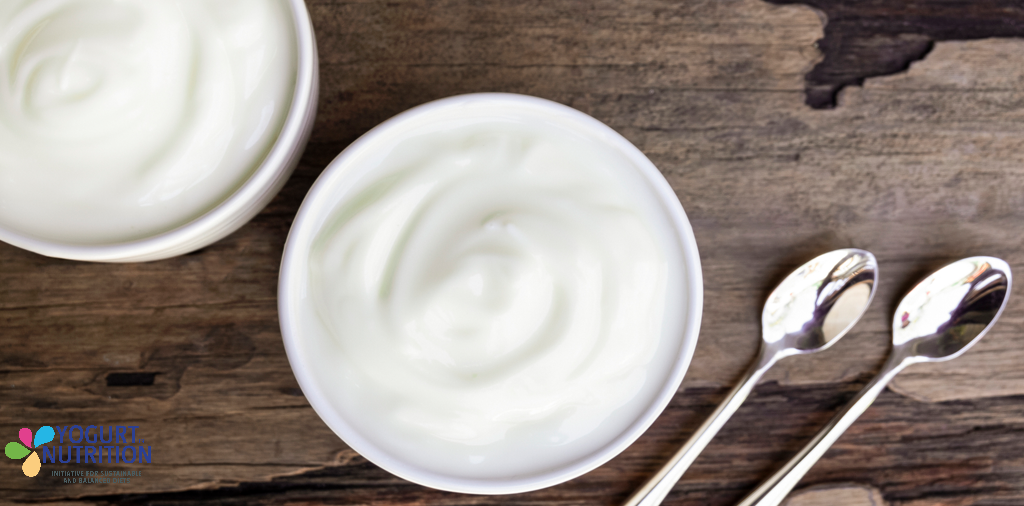Greek yogurt is a great option for replacing sour cream. Unlike its regular version (standard yogurt), in Greek yogurt, the lactoserum or whey – the concentrate liquid we usually find on top of the cup – is strained out after fermentation. This process provides a consistent and creamy texture. You should privilege whole-milk Greek yogurt to get as close as possible to sour cream.
What is Greek yogurt?
Greek yogurt is a high-protein yogurt (≥5.6%) with a creamy mouthfeel. Its traditional recipe, or Mediterranean style yogurt, is originated from Greece – However, it is consumed worldwide and under different names.
The production process remains traditional. It is fermented by bacteria, Lactobacillus bulgaricus and Streptococcus thermophilus, which feed by lactose, releases lactic acid that coagulates milk proteins and produces typical aromatic compounds. After fermentation, lactoserum is strained out, providing its consistent velvety texture and distinguishing it from regular yogurt [1].
Greek yogurt is a nutrient-dense food. It is an excellent source of proteins and calcium. It also contains other nutrients, such as vitamin B12 or vitamin D and It also contains live microorganisms.
More than a snack or a dessert, it can be a healthier substitute of heavy or sour cream.
How to replace sour cream with Greek yogurt?
In a recipe, use an equal amount of plain Greek yogurt.
It is a great substitute for dips, dressings, frostings, condiments and sauces. It is also a good option for marinades and home-made ice cream.
However, you must be careful with the temperature : generally yogurt has less fat than sour cream and can curdle easily in the heat. It can be cooked on low heat or added in the recipes at the end of cooking.
Here are some recipes to try:
- Greek chicken wrap with tzatziki herb yogurt sauce
- Greek yogurt panna cotta with strawberry
- Crepes with Greek yogurt cream
- Smoky salmon tacos with Greek yogurt sauce
For more information, you can find here all the possible switches by using greek yogurt as a substitute ingredient.



